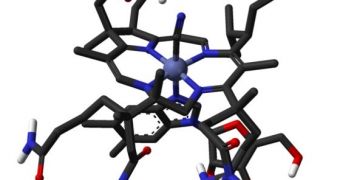Birth defects to the brain or the spinal cord are very serious conditions, which can easily lead to the new children living a very atypical life, or even to death. In order to avoid this, doctors now recommend would-be parents to stock up on vitamin B12, as recent studies have proven that the chemical plays a crucial role in reducing the incidence of birth defects. Taken together with folic acid, a normal prescription during pregnancy, the vitamin can ensure that the new child will be born safe and healthy.
Writing in the journal Pediatrics, researchers announced on Monday that Irish women who exhibited the lowest levels of B12 in their bodies were five times more likely to give birth to children with defects of the brain or the neural tube than those with the highest levels of the chemical. The scientists also noted that these defects could lead to lifelong disabilities and, potentially, to death.
They further add that two of the most common such problems are also the most serious. Spina bifida is a birth defect that prevents infants' spinal cords and backbones from developing properly, in that the exact pathways needed for the correct functioning of the nervous system do not separate. The other condition, known as anencephaly (which is, unfortunately, fatal), prevents the neural tube and the brain from developing normally in the first place.
“An absolutely critical point is that women have to consider this before they become pregnant, because once they realize they are pregnant it's likely to be too late,” Dr. James Mills, a researcher at the National Institutes of Health (NIH)'s National Institute of Child Health and Human Development, told Reuters in a telephone interview. He said that although folic acid was another type of vitamin B, the B12 variety was necessary for preventing neural tube defects.
For the new research, some 1,200 Irish women had blood samples taken during the first four weeks of pregnancy, to assess their vitamin B12 levels. The investigators noticed that they needed to have at least a level of 300 nanograms of B12 per liter, in order to avoid giving birth to babies with defects. Below this threshold, chances of the small ones having neural tube problems increase five fold, a risk that no parent should have to live with.

 14 DAY TRIAL //
14 DAY TRIAL //